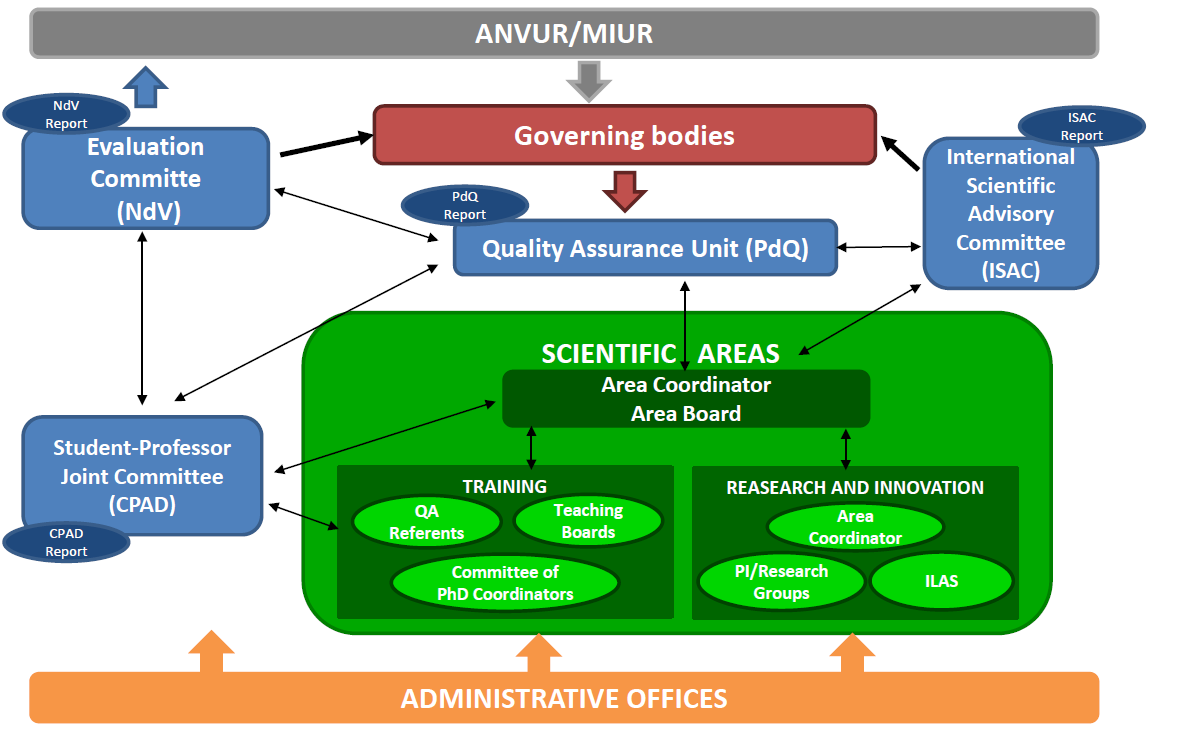The meaning of Quality Assurance
Ensuring Quality at SISSA means implementing procedures with the involvement of the entire academic community to achieve its educational, scientific and innovation (so called “third mission”) goals. These procedures aim at the continuous improvement of its provision and ensure compliance with the quality standards by planning, implementing, monitoring and evaluating all the School activities.
 The organisation of the QA System involves the following categories of actors:
The organisation of the QA System involves the following categories of actors:
- Governing bodies
- Monitoring and assessment bodies
- Teaching and research structures
- Administrative offices
The Governing Bodies define and promote the Quality Policies which are then implemented by the teaching and research structures. The control functions are exercised in various ways by the Evaluation Committee, by the Student-Professor Joint Committee and by the Quality Assurance Unit. Finally, the Administrative offices provide all the actors of the QA System with the necessary support to achieve and pursue their quality objectives.
The School’s Quality Assurance framework is based on the Standards and Guidelines for Quality Assurance in the European Higher Education Area (ESG) and on the national Guidelines for Self-assessment, Periodic Evaluation and Accreditation system (AVA) issued by the National Agency for the Evaluation of the University and Research System (ANVUR).
The existence and functioning of the Quality Assurance system is assessed by a Commission of Experts for the Evaluation of Schools (CEVS) as part of the Accreditation process performed by ANVUR.
Who ensures Quality
The progress of the QA system and its ability to achieve quality goals is evaluated by:
- Quality Assurance Unit
- Student-Professor Joint Committee
- Evaluation Committee
- International Scientific Advisory Committee (ISAC)
How to ensure Quality
The School defines its own Quality Policies within the scope of the Teaching, Research and Innovation processes, consistently with the Strategic Plan:
- the Quality Policy of Teaching/Training is geared at ensuring the sustainability over time of the educational offer and at promoting the attractiveness of the School, focusing particular attention on integrating the educational demand of students with academic activities, high-level research opportunities and career development
- the Quality Policy of Research and Innovation is geared at creating and stimulating context for increasing competitiveness in research to maintain its excellence and transfer its results to favour social and economic progress
The School promotes actions for Quality Assurance according to the Quality Policies and through the specific objectives defined in the appropriate planning documents (Integrated Plan).

